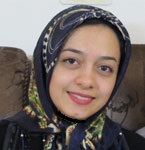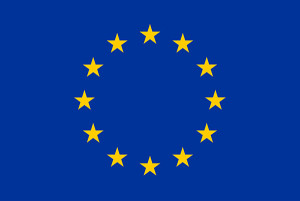 The public defense of Soheila Sheikh Bahaei’s doctoral thesis in Computer Science will take place at Mälardalen University, room Delta (Västerås Campus) and virtually on Zoom/Teams at 13.30 on March 15, 2023.
The public defense of Soheila Sheikh Bahaei’s doctoral thesis in Computer Science will take place at Mälardalen University, room Delta (Västerås Campus) and virtually on Zoom/Teams at 13.30 on March 15, 2023.
Title: Organizational Changes-aware Safety-centered Risk Assessment in Augmented Reality-equipped Socio-technical Systems
The faculty examiner is Professor Philippe Palanque, University Paul Sabatier, France. The examining committee consists of Professor Amy Loutfi, Örebro University, Sweden; Professor Jérémie Guiochet, University of Toulouse, France; Professor M. Carmen Juan Lizandra, Polytechnic University of Valencia, Spain.
Reserve is Professor Jakob Axelsson, Mälardalen University, Sweden.
Abstract:
In the last two to three decades, organizations have extremely changed. Post normal accident theory argues about implication of new organizational changes such as digitalization which may lead to new kinds of accidents called post normal accidents. In addition, there are technological changes such as usage of augmented reality (AR) as human-machine interface within various types of safety-critical systems. The organizational changes in addition to technological changes and their effects on human may introduce new system risks and should be considered in the risk assessment activities in compliance with related safety standards. Systems including technical entities and socio entities (i.e. humans and organizations) are called socio-technical systems. We consider socio-technical systems containing augmented reality which we call AR-equipped socio-technical systems. In order to adequately assess risk in such systems, it is essential to consider new dependability threats caused by augmented reality and new organizational changes. In the literature, various modeling and analysis techniques exist which are beneficial to be used for risk assessment. Furthermore, in the context of safety critical systems, it is crucial to consider safety standards and assess the risk in compliance with the related safety standards.
This thesis aims at strengthening risk assessment in AR-equipped socio-technical systems in compliance with safety standards considering post normal accidents by providing a safety-centered risk assessment framework (we call it safety-centered due to the support it provides for safety standards). Our work provides modeling capabilities for modeling dependability threats caused by organizational changes leading to post normal accidents in AR-equipped socio-technical systems. The capabilities are provided through metamodel extensions. The extensions are used for extending analysis techniques to address the requirements of AR-equipped socio-technical systems analysis considering safety standard and post normal accidents. To achieve this, we capture dependability threats leading to post normal accidents via new modeling elements, which we add to SafeConcert, a conceptual metamodel for modeling socio-technical systems, and its AR-related extensions. The extended metamodel is then used to strengthen a risk analysis technique used for socio-technical systems analysis. We propose a dependability analysis process in order to analyze the behavior of AR-equipped socio-technical systems. Based on the modeling and analysis extensions, we propose a safety-centered framework for risk assessment of AR-equipped socio-technical systems and we apply it in two different domains. First, we conduct a case study in the automotive domain in cooperation with our industrial partner and we show how the required activities in the related safety standards are supported by different steps of our framework. Then, we use a digitalized socio-technical factory system in robotic domain containing both organizational and technological changes as a case in a new domain in order to evaluate applicability and effectiveness of our framework for capturing new kinds of accidents due to dependability threats caused by organizational changes and AR.
Furthermore, we conduct a systematic literature review to position our contributions and to compare our work with other related works (we had preliminary literature reviews in the initial steps, nevertheless in this step we conduct a systematic literature review for positioning and comparing our work).

 This project has received funding from the European Union’s Horizon 2020 research and innovation programme under the Marie Sklodowska-Curie grant agreement No 764951.
This project has received funding from the European Union’s Horizon 2020 research and innovation programme under the Marie Sklodowska-Curie grant agreement No 764951.